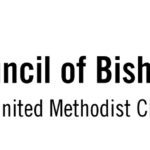A Book Review of Adapt to Thrive: How Your Church Must Identify Itself as a Unique Species, Modify Its Dysfunctional Behaviors, and Multiply Its Transformational Influence in Your Community, written by John Flowers and Karen Vannoy
John Flowers and Karen Vannoy’s Adapt to Thrive is what some might think is a church-help book. You are probably familiar with the genre, a book filled with great information that is probably useful for some other church, but not your church. This book is different, and it seems to be written specifically for three types of churches: churches with a dwindling or static congregation, churches wanting to create deeper Disciples of Christ, and new churches or churches with new pastors wanting to identify and avoid damaging cultural pitfalls within their congregations. If one of the above describes your church, Adapt to Thrive is a quick and useful read.
Adapt to Thrive uses the finch as a metaphor for church adaptation. The authors describe how finches are found all over the globe and how finches are uniquely adapted to their environment. In this book churches are encouraged to identify their specific purpose in their communities and adapt accordingly, like finches. Karen explains the process, “While watching a documentary on evolution, we realized how inevitable the change process was in the natural world, and began wondering about our own struggles with change in the church. As students of church history, we knew the church had gone through many adaptations and changes already, and it is a clear pathway to the future as well. Our hope is to gain a new way of thinking and talking about change in the church. It is not only a necessary step; it is a completely natural process. Somehow we’ve began thinking that keeping things the same was God’s way, but nothing could be further from the truth.”
Karen and John fill Adapt to Thrive with undoubtedly recognizable and relatable anecdotes and scripture references. There are examples of churches with “members playing church rather than being the church” (page 18) and observations of churches with members who have adapted from being “admirers of Jesus to followers of Jesus” (page 23). The vast revitalization and mentoring experience of the authors is shared with readers through these convincing personal stories.
The book is divided into 4 main parts. Part Three of Adapt to Thrive describes 10 Cultural Adaptations churches can make to become more healthy and vibrant. One of these adaptations explains the need to shift from a culture of entitlement to a culture of egalitarianism. John states, “The church is the only organization which does not exist for the benefit of its members. My hope is our churches look at themselves honestly, and see a new pathway for the future.” After reading the book, church leaders will feel empowered to better understand their church community and take bold first steps to change their church’s cultural DNA. “The first step in the born-anew adaptation as a new species is to recognize that your life is not about what you want, what you need, or what you desire, but for your species your life is all about what Jesus wants, needs, and desires” (page 21).
An appendix is available at the end of the book with effective study tools for church leadership in changing church norms. Local churches will find these resources helpful in aligning their church culture with its purpose.
Adapt to Thrive, ISBN 978-1-4267-7303-7, is available at http://www.churchfortomorrow.com/ and through Amazon at http://tinyurl.com/adapttothrive.

Finch perched on wall at Templo Emanuel in Sonoita, MX. Photo by Barry Doyle





